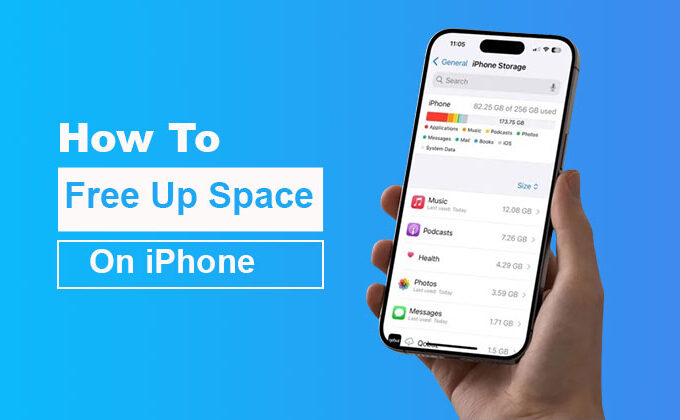Managing clients is integral to running any successful business, yet as your client base expands so too do its challenges: disorganized client data, missed follow-ups, inconsistent communication channels, and missed sales opportunities, Without one in place, tracking interactions and maintaining relationships becomes impossible to do efficiently and can become an exhausting undertaking.
With so many choices to choose from, which is the best client management software? That’s precisely the issue I’m here to assist with. In this article, I’ll explain what client management software is and the reasons why it’s so important, and the best tools that will help you improve your business’s operations.
What is Client Management Software?
Client management software enables businesses to better organize customer relationships from initial contact through ongoing support, with ease. Instead of managing spreadsheets or notes and emails individually, all contact info, communications history, project updates and billing details will all be managed through one platform, making it simpler than ever to stay organized with customers, schedule appointments on time, and ensure no important details slip by unnoticed.
If you have the best client management software, you can automate the process of sending reminders, keeping track of the sales progress, and analyzing customer behaviour. This is not just time-saving but also allows you to provide a more personal experience. If you’re a freelancer, small-scale business owner, or part of a bigger group, A well-organized system will improve customer satisfaction and efficiency.
Why Do You Need Client Management Software
Maintaining track of clients’ needs isn’t easy. Emails accumulate and follow-ups get lost in the gaps, and crucial information is lost in a mess of documents. This is where the client management software is a must. It helps you manage your relationships, making sure that you’re organized and never pass up a chance.
- Stay organized: There’s no more time to comb through spreadsheets or emails. All information about clients–contact details, notes, past interactions, and updates to projects is kept in one location and is easy to access whenever you need it.
- Reduce time with automation: Automate your follow-ups with no manual effort and scheduling issues. Automation of reminders, task assignments and appointment bookings so that you can concentrate on providing excellent service rather than juggling administrative tasks.
- Improved communication: If you have a complete track of previous interactions, preferences, and other issues, you can customize your communications. It makes your clients feel valued and improves relationships.
- Enhance sales & retention: A well-organized system aids in nurturing leads, monitors sales progress and ensures that there is no chance for a potential customer to be lost. Additionally, it keeps current customers active with frequent updates and personalised reminders.
- Improve team collaboration: No matter if you’re an entrepreneur on your own or working with a team using a shared client database makes sure all parties are on the same team. Don’t have to worry about duplicate efforts.
- Enhances customer experience: When you respond faster, follow up consistently, and can remember important information, customers feel appreciated. A seamless, well-managed experience improves trust and loyalty.
- Create reports and insights: The Best client management software doesn’t just store information. It helps you understand patterns in customer behavior, track the level of engagement, and make more informed business decisions based on actual information.
- Expand your business: If your customer base increases, coordinating all of it manually becomes impossible. A system that is properly designed ensures you have the ability to handle more customers without compromising quality of service.
Also read: Client Bookkeeping Solutions: Improve Business Efficiency
10 Best Client Management Software
10 Best client management software in 2025, including Zendesk, HubSpot, Salesforce, Monday.com, and more. Compare features, pros and cons to find the ideal CRM for your business needs.
1. Nutshell
Nutshell offers all the advantages of sales automation and client management in one application, providing all-encompassing client management. By automating mundane yet repetitive tasks, such as lead assignments and follow-up emails, this application frees you up to focus on developing stronger relationships with clients.
Another feature of this best client management software that impressed me is the capability to tag teammates on deals, which makes collaboration incredibly easy. Nutshell allows you to produce detailed reports for more insight into the behavior of your clients and the performance of the business.
Pros:
- Custom web forms are designed to collect relevant information from web visitors
- Alerts on mobile devices instantly to ensure everyone in the team is on the same page.
- Map, chart, list, and board view of pipeline management
- Automated multi-email drip sequences for improved engagement
Cons
- It is possible that the interface, features and user experience could take a while to become familiar with.
- Integration options are not as robust in comparison to other CRM platforms.
2. Keap
When I tried Keap I was impressed by it as an extensive solution that seamlessly incorporated the CRM, marketing automation and sales tools in one platform. The features for marketing automation let me create custom email campaigns with ease and to ensure prompt follow-ups for leads.
As a best client management software, Keap excelled by providing a centralized database in which I could save and access every client’s information, monitor interactions, and schedule appointments. The sales pipeline management was easy to use, allowing me to track sales and predict revenue quickly.
In addition, the invoicing and payment processing feature has been have made my billing easier and made it easy to issue invoices and get payment directly from the platform.
Pros
- Flexible templates for email and landing pages to fit the brand’s requirements
- Customer support is available 24/7 via various channels of assistance
- Built-in appointment scheduling allows you to make appointments directly through the system.
- Pipeline management for sales from end-to-end to monitor leads, deals, and revenue forecasts in a visually flexible pipeline
Cons
- Some users encounter an initial learning curve because of the extensive features of the platform
- There are occasions when email delivery issues arise, and some emails end up in the spam folders
3. Zendesk
Zendesk Sell made managing my sales pipeline significantly simpler due to its user-friendly platform that allowed me to keep an eye on leads, deals, and contacts from one central platform.
Real-time reporting features were especially valuable to me as they provided real insight into my selling performance and assisted with decision-making. Furthermore, integration between email and CRM allowed for seamless interactions directly through CRM while recording every interaction automatically.
Further, my mobile application allowed me to check client information and update deals at any time from anywhere and to keep everything accurate and timely. Zendesk Sell was the best client management software that provided many features that contributed to my sales process and client relations.
Pros:
- Excellent for customer support and ticket management
- Multi-channel support: email, chat, voice, social media
- Highly customizable workflows and automation
Cons:
- Not a full-fledged CRM for the sales pipeline
- Steep learning curve for new users
- Higher pricing for advanced features
4. ClickUp
Utilizing ClickUp, I was impressed by how well it managed the task management and relationships with clients, thanks to its flexibility features. It allowed me the create tasks and define deadlines, and then assign the tasks to my team members in a snap.
I was able to customize workflows that matched the needs of our project, which made it simple to monitor the progress. For the best client management software, ClickUp offered features like custom fields and statuses, which allowed me to keep track of client information and track interactions efficiently.
As an email interface is integrated directly into tasks, reducing any chance of missing key details is greatly simplified. Furthermore, my dashboard provided an overview of ongoing projects and client engagements to keep on top of all important activities.
Pros:
- All-in-one platform: tasks, docs, CRM, goals
- Highly customizable views and workflows
- Great for team collaboration and project tracking
Cons:
- CRM functions are limited compared to dedicated CRM tools
- Can be overwhelming with too many features
- Reporting tools are basic in the free plan
5. HubSpot CRM
After the integration of HubSpot CRM into my everyday operations, I found the intuitive user experience of this platform helped me manage contacts effortlessly while tracking deals and overseeing customer interactions across various channels.
The most notable feature was the unifying inbox, which combined messages from chats, emails and social media to ensure that I never missed a crucial message. In addition, the tools for marketing automation let me create personalised marketing campaigns, and the sales pipeline gave me transparent information on the stages of each deal.
As a best client management software, HubSpot CRM excels by providing comprehensive contact profiles that include interaction history and engagement metrics. This allows for better-informed and more personal customer interactions.
Pros:
- Free tier available with strong core CRM features
- Intuitive UI, perfect for startups and small businesses
- Seamless integration with marketing and sales tools
Cons:
- Advanced features locked behind costly upgrades
- Limited customization in lower plans
- Can get expensive as your business grows
6. Salesforce
Using Salesforce in our organization, I saw firsthand how it transformed our sales processes–streamlining client management, automating follow-ups, and providing real-time insights that made decision-making easier. The powerful contact management system gave the same view of each client’s interactions, which included all communications such as purchase histories, purchase histories and support tickets.
With Salesforce’s comprehensive view, our team was able to tailor their approach for each client individually, which improved the efficiency of relationship management. Sales pipelines that can be personalized help monitor deals closely, so no opportunity is missed out on. Finally, Salesforce provided insightful data analysis regarding sales performance and customer behaviors, which allowed for informed decision-making using data analysis.
As a best client management software, Salesforce excels by providing tools that simplify communications, monitor client interactions, and provide actionable data, and establishes its status as the top choice in the marketplace.
Pros:
- Industry leader with extensive CRM features
- Scalable for any business size
- Robust reporting, AI tools, and integrations
Cons:
- Expensive and complex to set up
- Requires training or a dedicated admin
- Overkill for small teams or solo users
7. Freshworks CRM
I discovered FreshWorks to be an excellent tool for managing deals and customer relations. The user-friendly deal pipeline enabled me to monitor how each deal is progressing quickly, giving me transparent information on each step.
Lead scoring using AI allowed prospects to be prioritized and prioritized deals based on profitability, and built-in communication tools — Integration between email and telephone communication eased client interactions while consolidating correspondence in one central place. Customizable dashboards provided insights into sales performance for better decision-making based on data.
As a best client management software, Freshworks CRM was a success, giving a 360-degree overview of each client’s details of interaction history and deal status and engagement levels. This helped to facilitate personal communication and relationships.
Pros:
- Easy to use with AI-powered lead scoring
- Strong automation and pipeline management
- Affordable pricing for small businesses
Cons:
- Fewer third-party integrations than Salesforce or HubSpot
- Limited customization in lower tiers
- May lack depth for enterprise-level sales processes
Also read: Best Account Management Software for Businesses in 2025 [Compared]
8. Pipedrive
Once I implemented Pipedrive, I quickly discovered it to be an indispensable resource for managing sales operations and client interactions. Pipedrive’s sales pipeline provided an intuitive visual representation that helped me prioritize tasks effectively and expediently.
Personalizing my CRM to suit my requirements allowed me to adapt it specifically for clients that meet them, making sure all pertinent client info was readily accessible. Integrating email tracking has greatly enhanced communications efficiency, making follow-up quick and straightforward.
As a best client management software, Pipedrive provided reminders for activities to ensure no interaction was missed with clients. In addition, its comprehensive overview of client histories, along with deal progress and scheduled tasks, provides for improved interaction with them.
Pros:
- Visual and intuitive sales pipeline
- Great for sales-focused teams
- Simple UI and fast setup
Cons:
- Lacks robust marketing automation
- Limited reporting in lower plans
- Not ideal for large or complex organizations
9. Zoho CRM
After the implementation of the Zoho CRM on my system, I discovered it to be the best client management software for managing interactions with clients across multiple platforms. The omnichannel communications feature allowed me to connect with my clients via email and social media, and live chat, and telephone, and all from a single interface.
This integration meant that I did not miss any client interaction regardless of which channel they prefer. Its AI assistance assistant Zia offered valuable insight through the analysis of customer data which helped me customize the approach I took to every customer.
The 360-degree customer view provided a complete overview of customer information, which included the history of purchases and previous interactions that allowing for more customized and efficient communication. As a best client management software, Zoho CRM consolidates all client data and communications, which makes it much easier to maintain and build strong relationships with clients.
Pros:
- Feature-rich at an affordable price
- Good automation, analytics, and AI tools
- Integrates well with other Zoho apps
Cons:
- UI can feel outdated and cluttered
- Setup and customization require time
- Support can be inconsistent in lower tiers
10. Monday.com
Monday CRM made it simple to adapt processes to meet my requirements and let me automate tasks, monitor leads visually and organize everything in one spot. The platform allowed me to create pipelines that matched my specific sales procedures, making sure that every stage was in line with my needs as a business. The user interface was visually appealing, making it simple to monitor deals and customer interactions, giving the most precise picture of where each deal was.
Automated tasks are streamlined and repetitive like reminders for follow-ups along with data entry which frees the time to focus on establishing relationships with clients. Integration with a variety of tools made sure that all client data was centralized.
The thing that impressed me the most was the ease with which the platform managed collaboration. Team members could use shared dashboards, update their profiles, and handle the tasks at a rapid pace. The built-in tools for reporting gave me a deep understanding of sales performance, allowing me to refine my strategies.
Pros:
- Clean, modern UI that’s easy to navigate
- Highly customizable workflows and boards
- Great for collaboration, time tracking, and automations
- Versatile: project management, CRM, HR, more
Cons:
- CRM features not as deep as Salesforce or HubSpot
- Gets pricey with more users and advanced tools
- Can lag with large datasets
- Limited offline capabilities
Conclusion
Finding the best client management software in 2025 depends on your business requirements, team size, and workflow complexity. Zendesk excels with its multichannel ticketing system, while ClickUp or Monday are great all-in-one collaborative tools offering project and client tracking combined into one tool.















Leave a comment